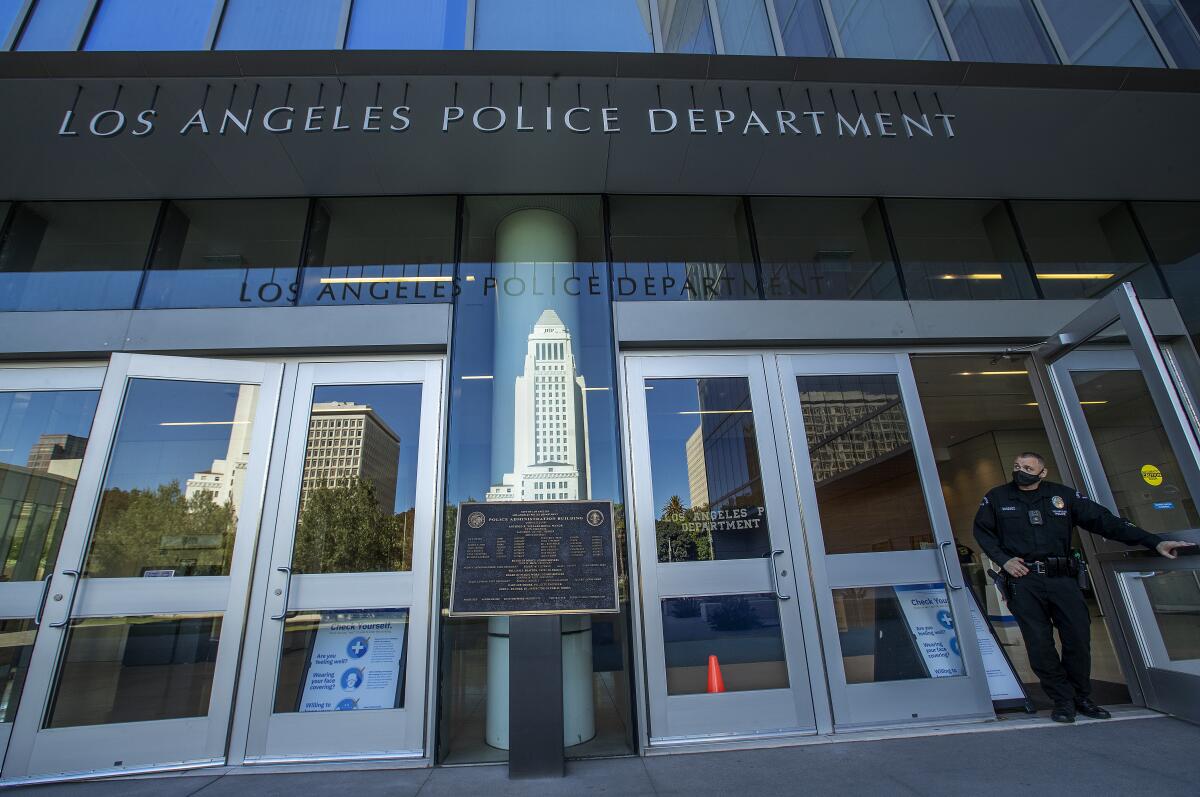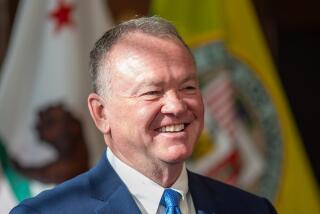LAPD says policing Summit of the Americas will cost more than $15.7 million

- Share via
The Los Angeles Police Department expects to incur millions of dollars in overtime and other costs when heads of state and diplomats from the Americas come to L.A. for a summit next month.
Officials said the $15.7-million estimate to police the Summit of the Americas was based on an expectation that the LAPD will need to be “fully mobilized” to help protect the hundreds of dignitaries expected to be in the city June 6-10.
Such mobilizations require significant increases in the number of on-duty officers compared with a typical day and rely on overtime pay for those who would not normally be scheduled to work, among other costs.
During recent budget discussions, LAPD Chief Michel Moore called the looming policing costs from the summit a “burden” that city officials still had to sort out. The summit was not accounted for in the LAPD’s current budget.
The LAPD budget is more than $3 billion annually, including pensions and other costs, while its operating budget is more than $1 billion.
Mayor Eric Garcetti’s office said the city will try to recover policing and other costs related to the summit by seeking reimbursements from the state and federal governments, though such reimbursements are not guaranteed.
In the bid the city submitted to host the summit, officials said the city would fund extra security for the event through a “combination” of the “existing LAPD budget,” hotel and other revenue from the city’s general fund that is generated by the summit, private funding from “civic, business and individual donors,” and “potential funding from Congress.”
The White House announced in January that L.A. would host the gathering of regional leaders. It will mark the first time the summit, which is convened every three years, will be held on U.S. soil since it was started nearly three decades ago.
The U.S. State Department has said in statements that its delegation will work at the event to secure “leader-level commitments and concrete actions” from other participant nations that “dramatically improve pandemic response and resilience, promote a green and equitable recovery, build strong and inclusive democracies, and address the root causes of irregular migration.”
In a report presented to the city’s Police Commission on Tuesday, LAPD officials said the department expects the event to bring “over 500 foreign government representatives, over 30 heads of state and additional Cabinet-level dignitaries” to multiple venues across the city over several days.
The LAPD said the event would also attract “over 1,000 additional public and private parties and organizations engaged in international commerce and business, diplomacy and youth engagement,” and was likely to attract protesters.
Paying for the additional officers needed to police the event will add about $3.15 million to the department’s expenses each day, nearly doubling its normal operating costs, according to figures released by the mayor’s office. Over the five days of the summit, the total cost to the department is expected to be $15,735,790.
Police officials did not respond to questions from The Times.
The actual price tag for the event will be higher, since increased costs to other city departments and other “undetermined” outlays for facilitating “an operation of this magnitude,” such as feeding officers, were not included in the estimate, the report said.
The LAPD said many of the officers brought on for the event would be placed on “standby” teams assigned to quickly help at venues should the need arise or respond to protests that are anticipated.
Federal law enforcement officers, including U.S. Secret Service agents, will be in charge of security for dignitaries inside the closed-door sessions, as well as for “hard security barriers or perimeter obstacles” around venues, the report said.
“Overall site protection and crowd control and crowd management remain the sole responsibility of local authorities, specifically LAPD,” the department’s report said.
In soliciting bids from potential host cities, the federal government noted that local officials were solely responsible for public safety costs, but that cities in the past have managed to offset them with funding from Congress.
More to Read
Sign up for Essential California
The most important California stories and recommendations in your inbox every morning.
You may occasionally receive promotional content from the Los Angeles Times.










